In just the past few years, artificial intelligence (AI) has taken the marketing world by storm, changing how businesses plan campaigns, interact with customers, build reports, and more. AI in digital marketing has started to gain its footing as brands figure out where it works and where it doesn’t when it comes to their unique needs.
The businesses with the greatest success in this emerging field are those that approach AI adoption strategically. They start with focused pilots that demonstrate value, gradually build organizational capabilities, and continue to learn as the technology evolves.
Whether your business is a bit behind on the AI train or it’s practically the conductor, this technology is changing fast — so we’re sharing our insights on where it’s going and how to maximize the benefits of AI.
Key benefits and opportunities for digital marketing AI
AI is the next leap in digital marketing, allowing professionals to execute more complex strategies and create better work with fewer resources. Thinking of AI tools as a partner for creating a stronger digital marketing team — rather than a way to replace one — helps set you up for success, with benefits like
- Increased productivity: Digital marketing AI solutions can automate tasks like data analytics, social media post scheduling, and customer outreach — freeing up time for teams to focus on content generation and brainstorms.
- Better market research: AI tools can evaluate customer and market data to create more detailed and accurate customer profiles, simplifying the creation of new strategies and targeted campaigns.
- Increased ROI: AI enables better trend and demand forecasting, using fewer resources for more effective campaigns to maximize ROI.
- Optimized user experience: AI can gather the information needed to create optimized user experiences, from research to implementation, to improve customer loyalty and conversion rates.
Popular use cases: Artificial intelligence in digital marketing examples
AI offers opportunities for digital marketing teams to access more information and greater insights than ever before. As more brands have tested out AI in digital marketing, customer service, sales, and other fields, some top use cases have emerged — showing exactly where AI shines.
Predictive analytics
AI tools for data analysis can pull insights from large swaths of data, helping digital marketers create targeted, data-driven strategies, even if they don’t have years of experience as data scientists. With help from AI, marketers can forecast customer behavior, make market predictions, and study potential outcomes before they even launch a campaign.
By leveraging AI in digital marketing for predictive analytics, businesses can get ahead of the curve, targeting high-converting customers and discovering why customers churn to make smarter, high-impact decisions.
Personalization
Without AI, personalizing marketing initiatives is a mammoth task. Between the research, creation, and implementation of tailored campaigns, smaller teams and businesses simply may not be equipped to handle it on their own.
AI can not only provide more detailed segmentation research but also allow businesses to target these segments with little effort. This includes AI-powered websites that make better product recommendations, personalized email campaigns, and even different browsing experiences for each visitor.
Chatbots and customer service automation
Customer service tools like Jotform’s Customer Support AI Agent can support your existing teams around the clock, answering frequently asked questions and providing order information to fill gaps after hours and relieve workloads.
AI agent technology like this has come a long way, and is now capable of being a vital tool in your conversational marketing kit. Explore Jotform’s AI Chatbot templates to help you get started. You can then train your agent via chat, relevant links, and uploaded documents to create an AI customer service experience that’s tailored to your business and designed to answer your customers’ unique needs.
Content creation and SEO
AI content creation tools help your team optimize and deliver better content, whether you’re looking to supercharge your SEO strategy or generate branded images. There are endless tools that support digital marketing teams through features like AI-based editing and ideation, to name just a few.
What’s more, AI content tools can help you scale content more easily. For example, AI can write engaging summaries from long-form content to help your team promote it on social media. That way, your team can spend more time perfecting that content instead of worrying about using the right hashtag to post about it.
User research
Tools like Jotform’s User Researcher AI Agent can help your team gather real insights directly from your customer base.
Your AI agent can upload information in real time to Excel or your customer management system or generate dashboards so your team can see what people are saying and take action.
Programmatic advertising
AI can also help your team by automating the buying, placement, and optimization of digital ads, targeting specific audiences. Rather than manually negotiating ad placements with publishers, programmatic advertising platforms use bidding algorithms to purchase ad inventory across websites, apps, and digital properties.
By analyzing vast amounts of data about user behavior, context, and historical performance, AI can also determine which ad impressions are most valuable — automatically bidding on and securing placements that are likely to drive results while staying within budget constraints. This allows your teams (even if they’re not the most data-savvy) to take advantage of past trends and sophisticated forecasting models to maximize your business’ return on ad spend.
Email marketing and capture
Whether you’re looking to expand the audience for your email newsletter or capture customer data for your records, Jotform’s Email Signup AI Agent can naturally interact with your customers and gather all the information you need.
The agent can also generate leads for your business and interact with new users on your website or app to boost conversions.
Visual search and voice search optimization
With the rise of generative AI search tools, users are relying more and more on visual and voice search. The best AI tools for business help brands track these searches, analyze user behavior, and create new campaigns that meet changing consumer needs.
AI can also help you parse through this data for brand mentions and other information that you can use to create campaigns that are better suited to meeting customers where they are.
Dynamic pricing
The best AI tools also open up businesses to the world of dynamic pricing models. These models allow the price of your products or services to change, responding to fluctuations in the market, consumer trends, and supplier prices.
Without a dedicated AI tool that can scrape all the data required to determine an appropriate price and ensure your website reflects that cost, it can be nearly impossible to keep up. But with them, businesses are empowered to implement dynamic pricing and maximize revenue.
Compliance and ethical considerations
Despite these benefits, businesses should select their AI tools and use cases carefully. It’s important to protect user privacy and data, staying up to date on regulations like GDPR and HIPAA, when applicable.
Here are some things to keep in mind to help keep your business’ AI use compliant and ethical:
- Review privacy policies: Carefully read the privacy policy of any tool you’re considering to learn how it uses data and ensure it meets any required regulations for your use case.
- Take action to prevent bias: Some AI tools can create biased outputs if they’re not managed appropriately. It’s always a good idea to have a team that reviews outputs for bias and ensures you’re not training AI on biased information.
- Protect user data: Choose tools that anonymize any user data you use to make larger decisions. If your tool has to retain some customer data, like an AI agent helping a customer find their order number, then make sure the AI isn’t trained on those conversations.
- Be transparent: Update your business’ policies to reflect AI use, including what information is collected and what you do with it.
Other potential challenges with artificial intelligence in digital marketing
Beyond ethical concerns, there are some other important limitations you should consider when working with AI. These tools are based on complex algorithms, but they can still make mistakes. So, always double-check outputs and decisions with the following in mind:
- Inaccuracy: Many large language models are trained on vast amounts of data, and it’s not possible to review it all for accuracy. If a model is trained on inaccurate information, it’ll create inaccurate outputs — simple as that. Verify any statistics or claims before using them for key decisions or reports.
- Creative limitations: AI isn’t human and tends to repeat similar phrases and sentence structures, especially for long-form content. Run your outputs through a human editor and add the human touch that’s not possible with AI tools.
- Integration challenges: Check if a tool works with your existing platforms before investing to make sure you can integrate it with your current processes and reduce issues during onboarding.
- Reduced authenticity: People can usually tell if a brand over-relies on AI for social media, content, and ad creation. The lack of human connection can erode brand trust, so it’s important to use AI as a creative tool — not a replacement for human creative professionals.
- AI learning curve: Like any other tool, it takes practice to perfect the art of AI prompting and learn how to use AI features. Give your team time to test and explore these tools before they’re expected to use them in their day-to-day work. That way, they have a chance to ask questions and work out the kinks before it impacts performance.
How to incorporate AI in your marketing strategy
Successfully incorporating AI into your digital marketing strategy requires a thoughtful, phased approach. If you go all in on AI digital marketing tools without the proper training or due diligence, you risk widespread issues with marketing, ads, and user research that can directly impact revenue.
Here’s how you can roll out the latest AI tools with care:
- Set SMART goals: Start by identifying specific pain points or opportunities where AI can deliver measurable value, such as analyzing a lengthy customer dataset. This targeted approach allows you to demonstrate ROI quickly with pilot projects.
- Start a pilot program: Limit the use of AI or new tools to just one business area or use case. That way, you can see how effective it is before expanding.
- Test multiple tools: Check out free trials or demos of tools to be sure they can help your team achieve their goals and test whether they fit with current workflows.
- Ask for feedback: Ask the digital marketing team about their experiences with the tool, where they need more support, and how they feel about the new process. The people who are working with AI every day are the best source of feedback.
Tips to find the right AI platforms
Your AI-based digital marketing strategy is only as powerful as the tools you use for it. Many of our tips for implementing new AI strategies apply to finding the right tools:
- Prioritize simple onboarding: Find tools that are simple to set up and use to quickly determine whether they provide what you’re looking for. Jotform AI Agents can be trained via a website link, uploaded documents, and conversation, so they’re up and running fast.
- Consider key stakeholders: Make sure you’re choosing a solution that addresses stakeholders’ concerns so you can demonstrate value. For example, you can use Jotform AI Agents to handle customer concerns and collect satisfaction scores after each interaction.
- Scale AI processes: Tools like Jotform AI Agents provide value in more than one area, but we’d still recommend starting with one key use case. For example, a consulting business might just use an AI agent to collect information from potential customers and, once that pilot is successful, start using the agent to book demos.
Long-term success and evolving trends
AI tools and technology are evolving rapidly. In fact, adoption has more than doubled in the U.S. alone since 2023 and almost 80 percent of worldwide businesses use AI in at least one capacity. As new models, use cases, and best practices change, your business needs to keep up.
Invest in time for your team to stay up to date on the latest AI trends by attending conferences, taking courses, and experimenting with new tools. Businesses that treat AI adoption as a one-time project rather than an ongoing journey will quickly find their competitive advantage eroding, and global patterns of AI use show that people are able to effectively use AI for more diverse use cases as overall usage increases.
Ultimately, effective use of AI tools in digital marketing requires regular updates, retraining, and maintenance for AI models. This will help your team avoid bias while maximizing the capabilities of your tools. This is especially important as AI tools expand to include more natural interactions, like generated video and audio, and especially relevant as creating and optimizing content are the top two reasons marketers use AI.
Become part of the future of AI in digital marketing
It’s crucial to approach AI in digital marketing with two things in mind: balance and intentionality. The biggest successes have come from businesses that use AI to support their expert human teams, instead of using it to run them.
That said, you’ll also want to approach it with speed. Customers are getting used to the convenience enabled by AI marketing tools, and they might not wait around forever for your business to catch up. Start with accessible yet powerful tools like Jotform AI Agents that are quick to set up, easy to use, and bring in results fast — keeping customers and digital marketing teams satisfied.
This article is for digital marketers, business owners, and marketing teams who want to understand how AI can streamline their workflows, personalize customer experiences, and improve campaign performance. It’s especially useful for those exploring practical ways to integrate AI tools into their marketing strategy and stay ahead of emerging trends.



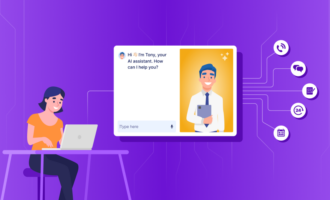
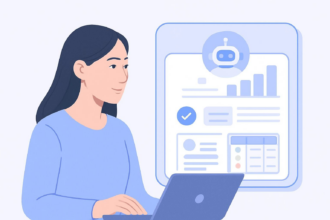






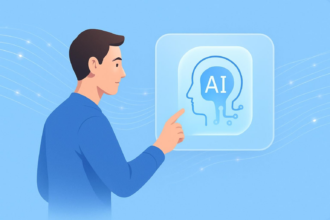

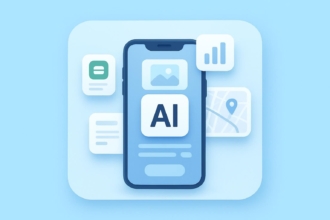
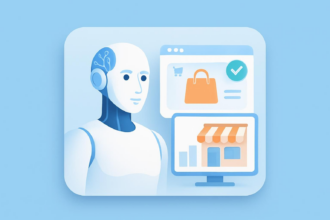
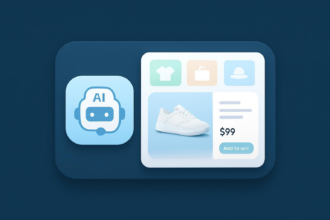




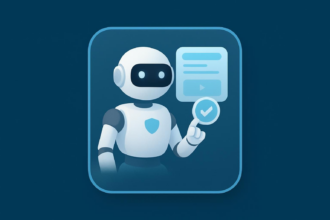






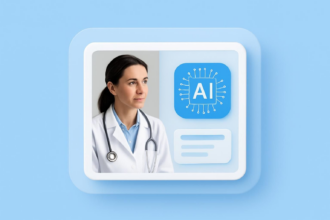

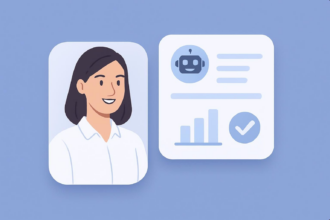
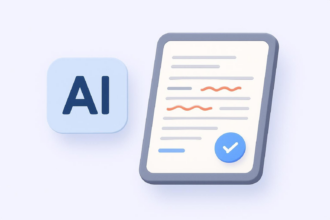




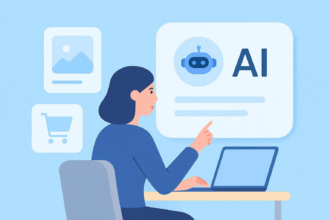
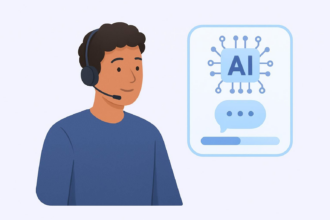

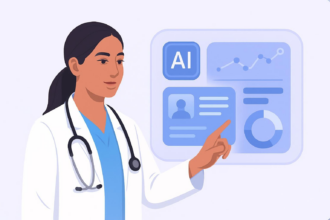


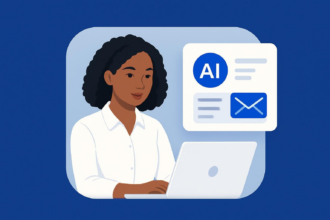

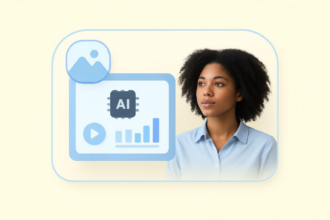




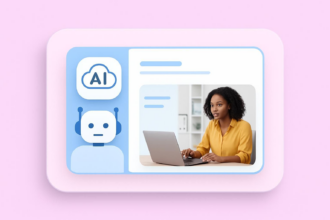
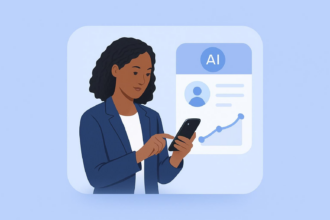




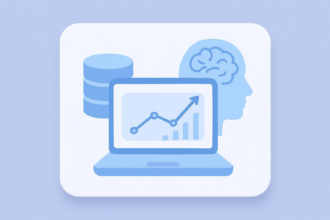
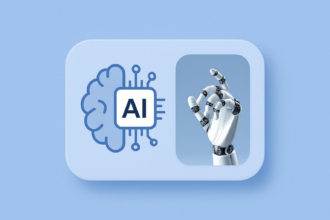














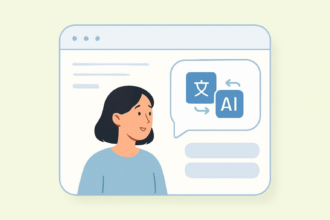



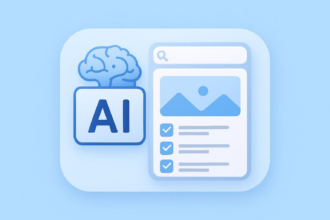
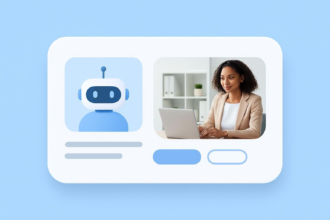
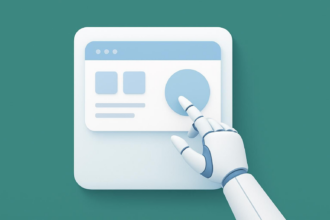
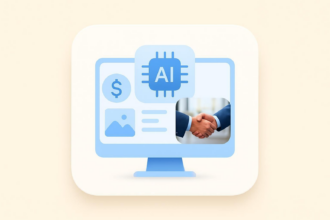







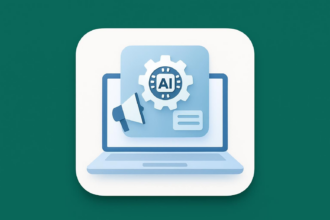



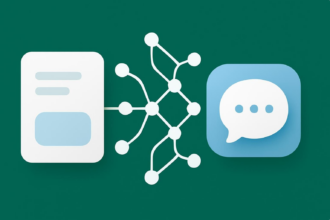







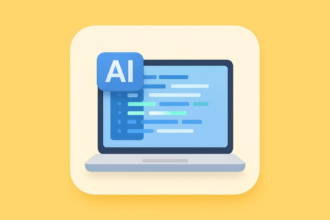





Send Comment: